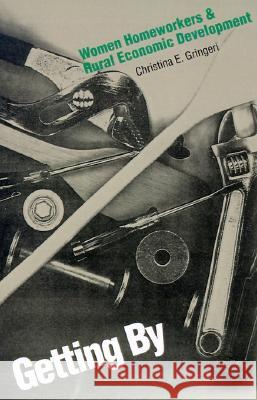Getting by: Women Homeworkers and Rural Economic Development » książka
topmenu
Getting by: Women Homeworkers and Rural Economic Development
ISBN-13: 9780700611072 / Angielski / Miękka / 1994 / 208 str.
In this book Christina Gringeri investigates the effects of homeworking on workers--mainly women--and their families and explores the role of the state in subsidizing the development of homeworking jobs that depend on gender as an organizing principle. She focuses on two Midwestern communities--Riverton, Wisconsin and Prairie Hills, Iowa--where more than 80 families have supplemented their incomes since 1986 as home-based contractors of small auto parts for The Middle Company, a Fortune 500 manufacturer and subcontractor of General Motors.
Gringeri looks at rural development from the perspective of local and state officials as well as that of the workers. Through the use of extensive personal interviews, she shows how the advantage of homework for women--being able to stay home with their families--is outweighed by the disadvantages--piecework pay far below minimum wage, long hours, unstable contracts, and lack of company benefits. Instead of providing the hoped-for financial panacea for rural families, Gringeri argues, industrial homework reinforces the unequal position of women as low-wage workers and holds families and communities below or near poverty level.










